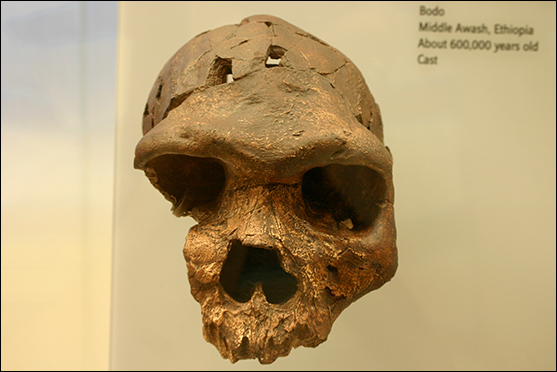
Render unto Caesar
Students occasionally offered erroneous answers with absolute confidence, but this fellow had thrown down a gauntlet.
Here it was, the rare and wondrous occasion of a student’s hand being thrust into the air, not with tentative reluctance but like some sort of martial arts exhibition. We should have suspected something was amiss. College freshmen aren’t normally so enthusiastic. Booby traps can close with surprising speed.
Scott Shaw and I were team-teaching in the University of Wyoming’s general education program. The challenges of engaging non-majors in science led to our inventing a game-show exercise in which students submitted questions extracted from the text, we chose the ones that best illustrated important principles, and then the students competed for points by answering each other’s questions. Like the Monty Hall of biology, Scott pointed to the excited student, and the trap slammed shut.
“Six thousand years,” the student announced, a contemptuous sneer spreading across his face. Only a cursory glance at the text had been necessary for one of his classmates to compose a question about the time since humans evolved. Students occasionally offered erroneous answers with absolute confidence, but this fellow had thrown down a gauntlet. He sat back sanctimoniously, awaiting a response. The students shifted in their seats, like a crowd gathering with the first shove that foretells the onset of a schoolyard brawl.
Scott was the emcee for the morning (I was safely ensconced as the scorekeeper), so 92 pairs of eyes turned to him. His options were limited. Ignoring the fundamentalist student would open the door to continued challenges. Confronting him was hardly viable, given that the student-professor disparity of power assured little honor in victory. And placating him would require the balance of the period to salvage science on the student’s terms.
“Right answer,” Scott intoned authoritatively. Ninety-three mouths fell open (mine included). Scott was a staunch evolutionist with little tolerance of creationism. Now he’d just given away our credibility as scientists in two simple words. But he wasn’t quite done. Scott offered two words that put the world back into order. With an apologetic shrug, he sighed, “Wrong class.”
When the Pharisees tried to provoke Jesus into a conflict with the state, he replied: “Render unto Caesar the things which are Caesar’s, and unto God the things that are God’s.” Scott had transformed this biblical lesson into modern terms, admonishing our students to grant science that which lies in its rightful purview, and to religion that which is in its realm. Gaping mouths lifted into knowing smiles, except one. Perhaps he’d learned that while there can be a dialogue between the natural sciences and human values, genuine engagement does not begin with a sneer—by a student or a legislature.
Photograph (above): A fragment of a skull from Homo heidelbergensis in the Smithsonian Natural History Museum (cc Ryan Somma). See sidebar for links to related resources.
Comments powered by Disqus






